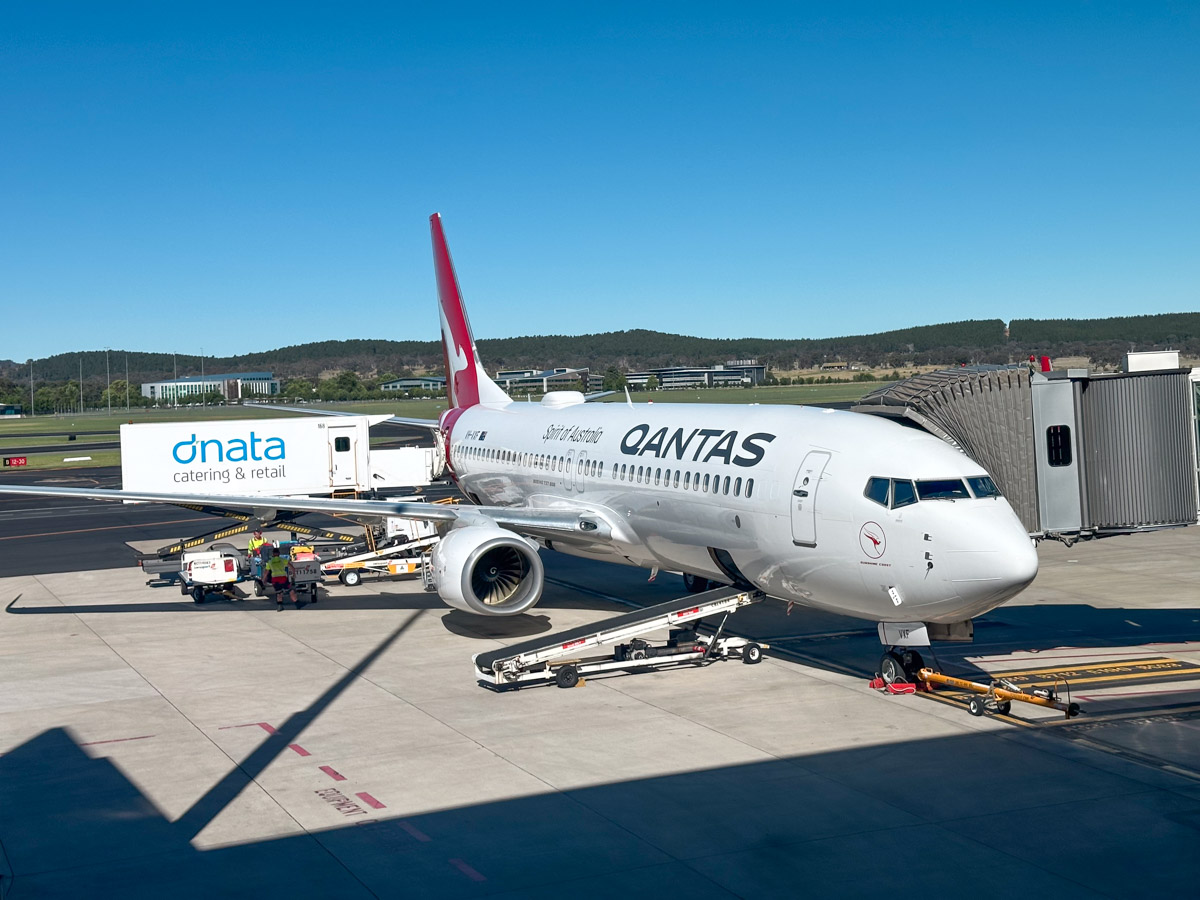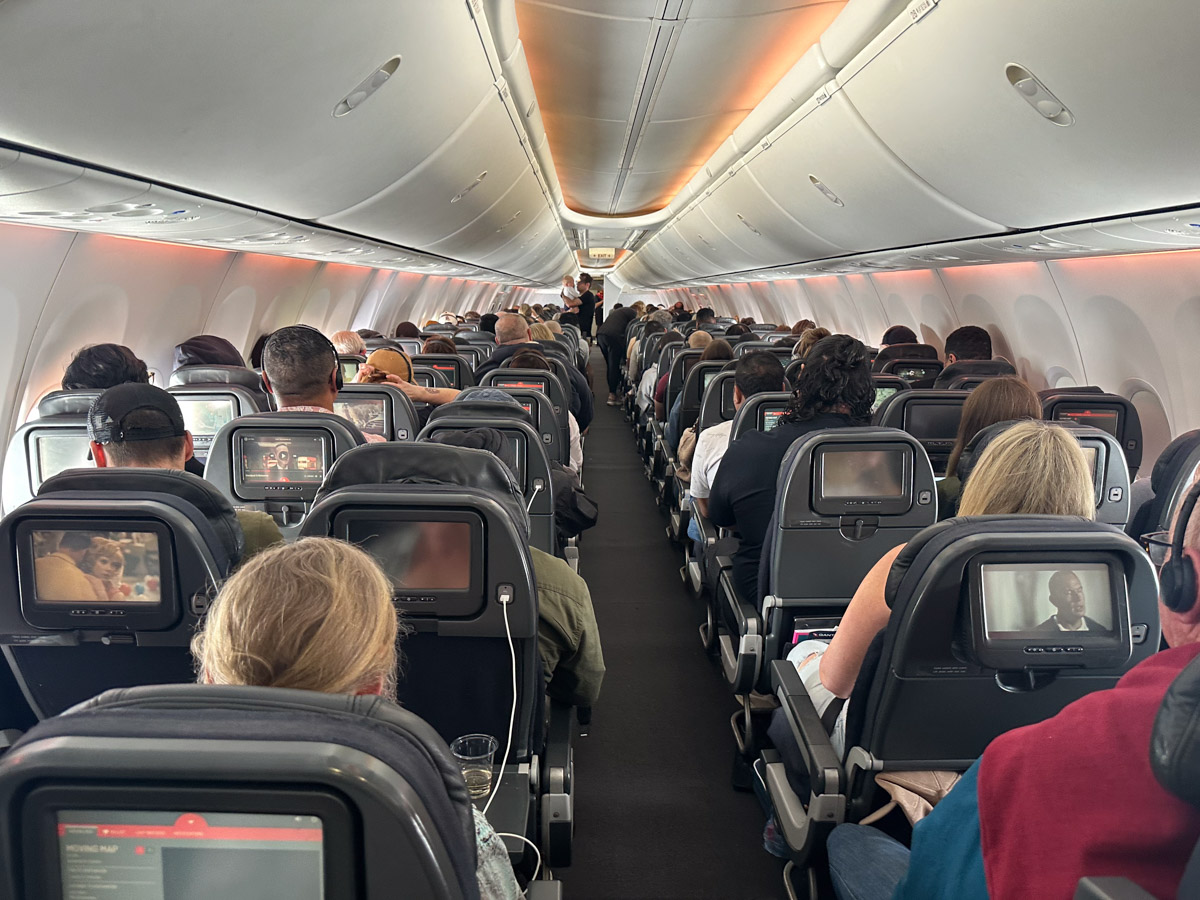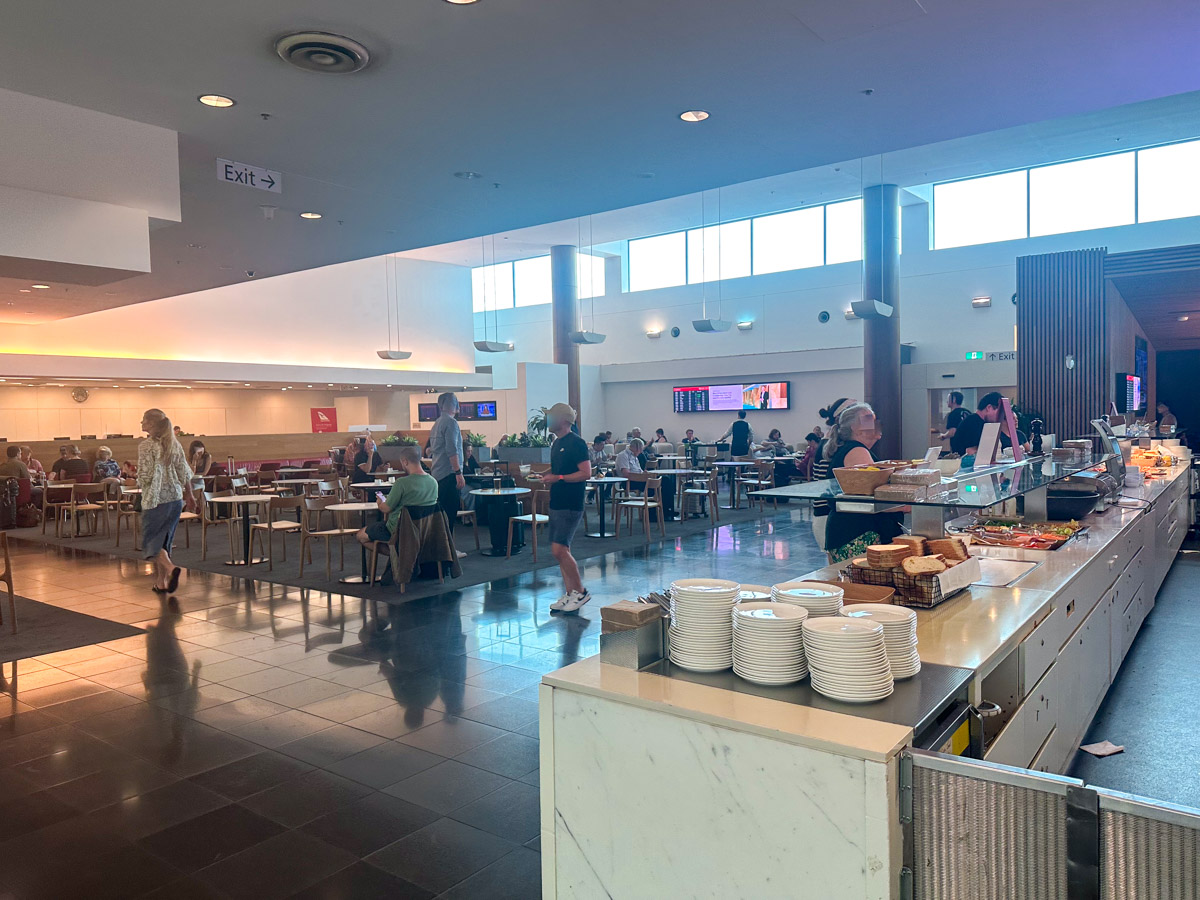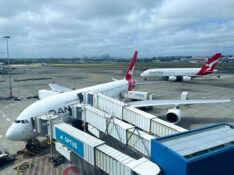Public Servants Spent $1 Million More on Flights During Double Qantas Status Credits

In news that probably won’t come as a surprise to anyone, public servants working for the Australian government booked 20% more Qantas domestic flights than the monthly average during Qantas’ latest Double Status Credits promotion.
According to data obtained by The Canberra Times, the total amount spent on public service flights during the week-long promotion in March 2025 was just over $1 million higher than the monthly average.
And it seems Australia’s public servants are becoming increasingly savvy at taking advantage of Qantas’ double status credit (DSC) offers. The previous two promotions had seen 12% and 5% increases in Qantas domestic flight bookings, respectively, reports The Canberra Times.
I’m surprised the increase is not higher
To be honest, I was a bit surprised that the surge in public service flight bookings was only 20% during Qantas’ double status credits offer. Many AFF members go a bit crazy and book their entire year’s worth of travel during these offer periods. So, if they could get away with it, it makes sense that people booking with other people’s money would want to do the same!
In fairness to the Australian public service, flight bookings were also higher than average in the week after the March 2025 double status credit offer. But the bookings made during double status credits were significantly higher than the previous week, and the total amount spent on flights dropped back to “normal” levels two weeks after “DSCs”.
The fact that Qantas offered double status credits in the week after Cyclone Alfred hit southeast Queensland could also explain some of the increase.
Some might be quick to criticise public servants for trying to maximise their personal rewards when booking work travel. This is certainly not something that’s unique to the public service, but the potential issue here is that they’re spending taxpayer dollars.
Qantas airfares are often higher during double status credits, but…
One question worth asking is whether this actually costs taxpayers more.
The Canberra Times data indicates that public servants did book slightly more expensive airfares overall, compared to the monthly average, during the double status credit period. But the difference wasn’t huge, and there’s a reason for that.
As many AFF members have noticed, Qantas’ cheapest airfares are typically higher – or at least, not on sale – during promotions like double status credits. But this wouldn’t necessarily mean that the airfares that the government is booking are more expensive.
That’s because most government travel is booked in a flexible fare category – usually “B” class for Qantas Economy flights – at an agreed corporate rate. The price for Qantas’ second-most expensive flexible Economy fares doesn’t really fluctuate from week to week.

Since 2010, frequent flyer points are not earned when travelling for the Australian government. But people travelling under the Whole of Australian Government (WoAG) Travel Arrangements can still earn status credits.
It could simply be that public servants are paying attention to forums like AFF, and know that DSC offers are a good time to book in future travel that they were planning to undertake anyway. It’s not as if public servants are booking unnecessary Qantas status runs en masse at taxpayer expense. The government travel guidelines explicitly state that official bookings cannot be used for personal or leisure trips.
Is it reasonable for public servants to earn double status credits?
Personally, I don’t think it’s too unreasonable that public servants want to take full advantage of the benefits that frequent flyer programs offer.
When travelling for work, they often have to fly outside of regular work hours, particularly on early morning and late night flights, and spend a lot of time away from their families when doing so. If a few perks like lounge access make this a bit more bearable, and this doesn’t come at an additional cost to taxpayers, that’s perhaps not the worst thing.

However, the guidelines issued by the Department of Finance, which sets the Commonwealth government travel policy, have a different take. This is what the Department says about “Status Credits and Loyalty Reward Program offers”:
Government travellers may receive promotional offers from airlines related to Status Credits and Loyalty Reward Points. Promotional offers that present Australian Government travellers options to accept bonus Status Credits or bonus Frequent Flyer Points should not be accepted. WoAG travellers should not obtain a personal benefit from Commonwealth funded activities, particularly as the acceptance of such an offer may influence the choice of airline for future official air travel.
So, government travellers “should not” accept offers such as bonus Status Credits. I guess that’s about as mandatory as politicians declaring their membership of Chairman’s Lounge and any upgrades they receive. 😉
It’s also worth noting that Virgin Australia offered a status match in 2018 that was specifically for federal government employees. If this wasn’t designed to influence which airline government travellers were booking, then what was the point of it?
Government travel has a “best fare of the day” policy
Something that’s perhaps a bit more problematic is that, even though Virgin Australia typically has lower airfares, it gets less than a third of federal government domestic travel bookings.
How can this be the case when public servants must book the “Best Fare of the Day” on international trips, or the “Lowest Practical Fare” on domestic trips?
On the question of preferencing one airline over another when booking official travel, the Department of Finance says:
Participating entities must comply with the requirements of the LPF and IBF policies. Value for money is the overarching consideration when selecting air travel. Accordingly, entities must select air travel based on an impartial consideration of the available fares, not a personal preference for a particular airline or aircraft type.
So, why do so many more government travellers book Qantas when it’s often more expensive? And why was there a 20% surge in bookings during the week that Qantas was offering double status credits?

I guess this comes down to the implementation of the Lowest Practical Fare policy. This policy requires travellers to book the cheapest available flight up to one hour before their preferred departure time on an outbound journey, or up to one hour after their preferred departure time on an inbound journey back home.
But it’s often not that difficult to simply request a flight at a time when there isn’t a competing Virgin or Jetstar flight departing within an hour. And even if another airline does have a cheaper flight departing within an hour of the Qantas flight, there are a range of exceptions.
Officials can still book a more expensive flight than the cheapest option if they can justify it. For example, they could say that the Qantas flight:
- Has the most direct routing
- Ensures connections for further flights are met
- Is cheaper overall when accounting for excess baggage fees
- Is required due to health issues
- Is the most practical option due to personal responsibilities at home
Double status credits can be quite lucrative
Since official travel tends to be on flexible airfares, booking during a double status credit offer can be particularly lucrative for public servants.
A single return Economy Class booking from Canberra to Tamworth via Sydney, for example, would earn 160 status credits with DSCs. A public servant could retain Qantas Gold status by doing this trip just four times.
Of course, federal politicians themselves don’t need to worry about double status credits. Neither do some senior public servants, including those in charge of regulating Australia’s airlines. That’s because Qantas has gifted them Chairman’s Lounge membership. As well as access to exclusive airport lounges and a direct line to the Hobart-based VIP Service Team, this comes with automatic Platinum status.



Community Comments
Loading new replies...
Join the full discussion at the Australian Frequent Flyer →